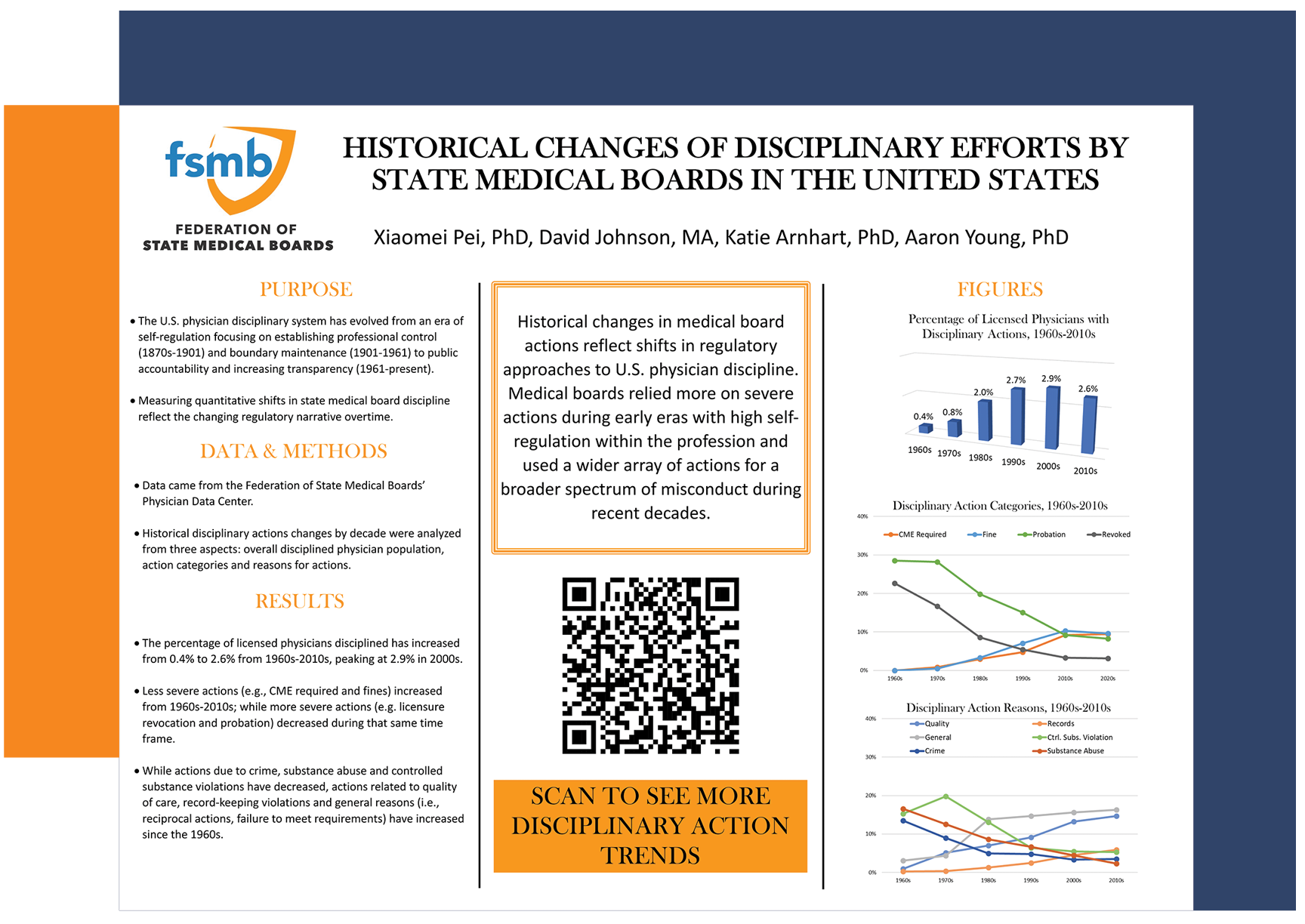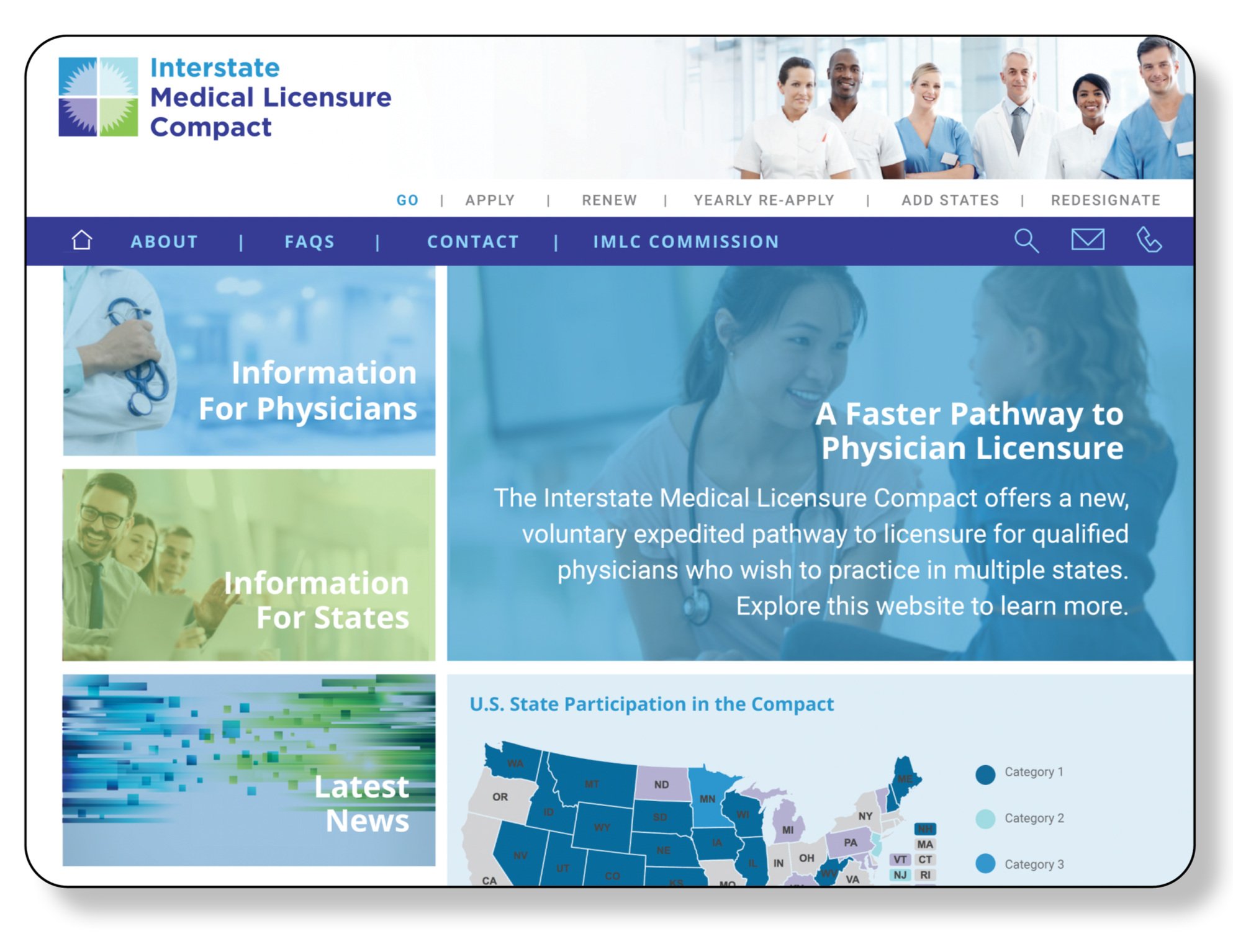FSMB’s information services and data processing capabilities are foundational to our mission and vision — greatly enhancing our ability to effectively and creatively support state medical boards in their mission of public protection.
The FSMB’s Information Systems and Physician Data Center (PDC) divisions have dramatically changed their technology, tools, and processes in recent years – enabling the organization to provide outstanding solutions to member boards across the country. Data and information processing capabilities are foundational to FSMB’s mission and vision, and we continue to make improvements by regularly investing in our workforce and new technologies. This continuous effort has changed the way FSMB works in many ways – adding to our effectiveness and enhancing our ability to support state medical boards in their mission of public protection.
Supporting Boards with Important Data
The Physician Data Center is one of the nation’s most robust repositories of health-provider data, with multiple layers of licensure and demographic information for more than 1.2 million physicians and physician assistants.
As one of the nation’s largest and most comprehensive health-provider databases in the U.S., the PDC is widely relied upon by state medical boards, the credentialing community, consumers, and many others for reliable, up-to-date data on physicians and physician assistants.
Recently, the FSMB completed a year-long redesign project to augment the PDC user experience by improving search functionality, physician roster management, and adding technological advancements to support future development.
The result: A cleaner, more responsive, and efficient platform that makes accessing physician data easier than ever for PDC users. These enhancements ensure that FSMB’s PDC will continue to be the easiest and most trusted way for medical boards to verify physician disciplinary and licensure information. The new PDC web-user interface will be available to state medical boards in Summer 2023.
Additionally, the PDC launched a new service – Practitioner Direct – enabling practitioners to send PDC profiles and NPDB reports directly to boards. This approach provides a centralized database with the most complete and up-to-date picture of a physician’s license history, specialty certification, and any discipline taken by state medical boards or other government agencies. In 2022, 7,601 physicians used this new service.
Learn more about the physician workforce and the impact of state boards.
PDC Sees Increase in Queries
In 2022, the PDC continued to provide important data services to state medical boards. Medical boards queried the PDC tens of thousands of times throughout the year, receiving important notifications on disciplined physicians and valuable licensing data. Here highlight of some of the important interactions between boards and the PDC in the past year:
Helping State Medical Boards Unlock Key Insights
FSMB adds value to its extensive data repository through the work of its Research team, which provides data analysis and consultation for state medical boards, health organizations, and the public.
In 2022, the team responded to numerous requests from the state medical board community for data analytics on various licensing and disciplinary issues. Data provided by the Research team equipped boards with useful data to respond to a wide variety of needs and issues.
The team continued to enhance its ability to provide customized data to assist individual boards in better understanding and responding to various licensing and disciplinary trends both at the state and national levels. Among the many projects FSMB assisted boards with last year:
Partnered with boards to provide licensing and disciplinary statistics comparing their states’ physician characteristics with the national licensed physician population.
Developed customized visual graphics, including “heat maps,” to help specific states identify the number of licensed physicians practicing in states with similar demographics.
Provided data that supported state medical board leadership presentations at conferences.
Delivered statistical analysis to help boards offer national context when responding to media inquiries.
Advancing an Understanding of Medical Regulation
The Research team continued its commitment to outstanding academic scholarship, publishing key studies in journals that placed medical regulatory issues in front of national healthcare, regulatory, and governmental audiences. Publications by the team in 2022 included:
“An Examination of the Associations Among USMLE Step 3 Scores and the Likelihood of Disciplinary Action in Practice” in Academic Medicine with NBME partners examined how physicians with higher Step 3 scores had a lower likelihood of receiving disciplinary action from state medical boards, after accounting for other factors.
“Medical Student Well-Being While Studying for the USMLE Step 1: The Impact of a Goal Score” in Academic Medicine November 2022 with NBME partners that looks at the relationship between exam goals, anxiety, stress, and distress upon completion of Step 1.
Presented a poster titled “Historical Changes of Disciplinary Efforts by State Medical Boards in the United States” at the American Association for the History of Medicine (AAHM) annual meeting in April 2022 which highlighted how state medical boards previously issued more severe disciplinary actions (circa 1960s) and but have used a wider array of actions for a broader spectrum of misconduct during recent decades.
Enhancing Physician Mobility with New Technology
In 2022, the Information Systems and Physician Data Center teams created and launched an important new tool that quickly paid dividends by helping states participating in the Interstate Medical Licensure Compact (IMLC) quickly verify that physicians meet eligibility requirements. When the IMLC – an alternative, voluntary pathway to licensure for physicians wishing to practice in multiple states – became operational five years ago, one of its most attractive features for physicians was its ability to streamline the credentials verification process.
The FSMB’s new Physician Attribute Verification Report (AVR) streamlines the process even further. The AVR combines verification of multiple categories of primary source data required for physicians to participate in the IMLC in one convenient and user-friendly report – saving many hours of laborious verification for the 39 jurisdictions participating in the Compact. IMLC boards using the AVR report that processing times have been cut significantly.
The AVR grew out of a collaboration between FSMB, the IMLC, and the American Medical Association (AMA). In addition to FSMB data, the AVR provides information from the AMA about a physician’s graduate medical educational background – a key component for IMLC eligibility.
The effort was funded by a grant from the Health Resources and Services Administration (HRSA), a part of the U.S. Department of Health and Human Services, to support the IMLC and further enhance license portability for physicians and physician assistants. Additionally, FSMB’s Research team supported the Compact by updating state statistics on physician eligibility for through the IMLC; and summarizing statistics on IMLC applications, letters of qualification, processing times, and licenses issued through the IMLC.
NPDB Implements Key Recommendations from Basis Code Consortium
FSMB participated in a consortium of regulatory organizations that have worked closely with the National Practitioner Data Bank (NPDB) to bring more consistency to the system for categorizing disciplinary actions taken against healthcare practitioners. This effort bore fruit in 2022 when the Basis Code Consortium completed an in-depth review of NPDB’s more than 70 basis codes used for disciplinary actions and provided recommendations to the NPDB for improvement.
During its review of NPDB’s basis codes, the consortium sought to make recommendations to improve the consistency and value of the data. The Basis Code Consortium’s recommendations, which were implemented by the NPDB in December 2022, included:
Adopting basis-code definitions for use by all agencies reporting health care disciplinary actions to NPDB
Modifying category descriptions containing confusing or outdated terminology
Retiring codes that were overly broad, redundant, or underutilized
In addition to FSMB, the consortium included the National Council of State Boards of Nursing, National Association of Boards of Pharmacy, Federation of State Boards of Physical Therapy, Association of State and Provincial Psychology Boards, Association of Social Work Boards, and National Board of Certification of Occupational Therapists. FSMB and the National Council of State Boards of Nursing hosted a series of online webinars to summarize the project’s findings and impact on state licensing boards.






